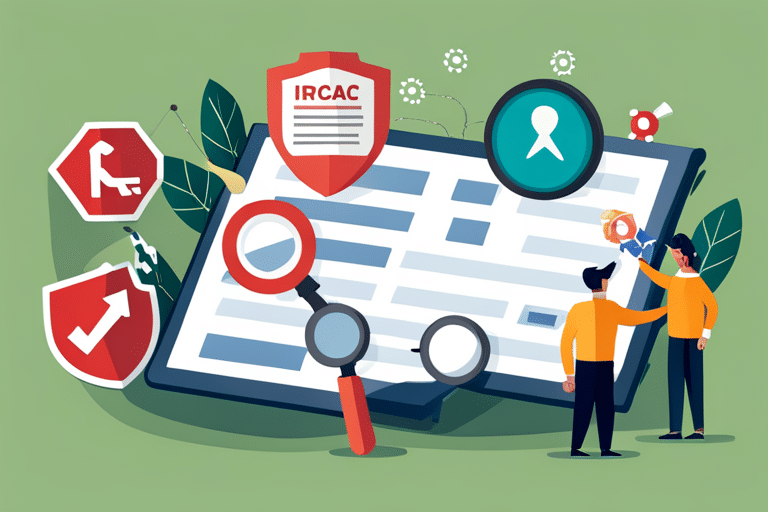Are you ready to take the plunge and explore the hidden depths of insurance quotes?
Dive in and discover the factors that have a splashy impact on your rates.
From your driving history to your age, vehicle type, credit score, location, occupation, claims history, mileage, and even additional drivers – each one is like a wave shaping your quote.
So grab your snorkel and let’s embark on this deep sea adventure together!
Key Takeaways
- Driving history, including traffic violations and claims history, has a significant impact on insurance quotes.
- Factors such as age, location, and occupation can also influence insurance premiums.
- The type of vehicle, including its make and safety record, can affect insurance costs.
- Maintaining a good credit score is important for getting the best insurance quote.
Factors Related to Your Driving History

When determining your insurance quote, the company will take into account your driving history and any previous accidents you’ve had. Your driving history plays a significant role in how much you’ll have to pay for your insurance premium. It’s important to understand the impact that traffic violations can have on your insurance rates.
Traffic violations such as speeding tickets or running red lights can result in higher insurance premiums. Insurance companies view these violations as signs of risky behavior behind the wheel, which increases their perception of risk associated with insuring you. This means they may charge you more for coverage to compensate for this increased risk.
But don’t fret! Even if you’ve had a few mishaps on the road, it doesn’t mean you’re doomed to pay sky-high premiums forever. Insurance companies typically only consider violations from the past three to five years when calculating your premium. So, if you’ve recently cleaned up your act and haven’t had any new infractions, there’s hope for lower rates!
It’s essential to be mindful of how your driving habits affect not just your safety but also your wallet. By practicing safe driving techniques and obeying traffic laws, you can keep those premiums in check. Plus, having a clean driving record over time could lead to discounts or reduced rates down the line.
The Impact of Your Age on Insurance Quotes

Your age significantly affects how much you’ll pay for insurance. It’s one of those unavoidable truths that come with growing older. But fear not! Understanding the correlation between age and insurance rates can help you navigate this tricky terrain and make the most of your premium costs. Here are a few key points to keep in mind:
-
Younger is pricier: As unfortunate as it may seem, being young and full of zest doesn’t bode well for your wallet when it comes to insurance rates. Insurance providers often view younger individuals as riskier drivers due to their lack of experience behind the wheel.
-
Teenagers face the highest premiums: If you’re a teenager itching to hit the road, brace yourself for some high numbers on your insurance quote. The combination of inexperience, impulsivity, and adventurous spirit makes insurers cringe.
-
Young adults get a break: Once you enter your early twenties, there’s a glimmer of hope on the horizon. With each passing year (and hopefully without any accidents or traffic violations), your premium costs tend to decrease gradually.
-
Older but wiser: As time goes by, insurance providers start seeing you as less of a liability on the road. Age brings wisdom after all!
-
Middle-aged magic: When you reach your thirties and forties, insurance companies take note of your more responsible driving habits. Your experience on the roads combined with fewer risky behaviors can lead to significant drops in premiums.
-
Golden years savings: Once you hit retirement age, there’s another opportunity for lower rates awaiting you. Insurers recognize that retired individuals tend to drive less frequently and have more time to maintain their vehicles properly.
How Your Vehicle Type Affects Your Insurance Rate

Different vehicle types can greatly impact the cost of your insurance. Yes, my friend, it’s time to talk about how the wheels you choose can either save you a bundle or break the bank when it comes to your insurance rate. Buckle up and let’s find out what factors are at play here!
First things first, let’s talk about the make of your vehicle. Some vehicles are just more expensive to insure than others. Luxury brands tend to come with higher price tags not only for purchasing but also for insuring. The logic behind this is simple: if your car costs an arm and a leg, it’ll cost an insurer an arm and a leg to fix or replace it if something goes wrong.
But fear not! If you’re not in the market for a high-end ride, there’s still hope for affordable premiums. Compact cars and family-friendly SUVs often fall into lower insurance brackets because they tend to have good safety records and aren’t as costly to repair.
Now that we’ve covered vehicle make, let’s hit the brakes on another important factor: your driving record. Your past behavior on the road can have a big impact on what you pay for insurance. If you’ve got speeding tickets or accidents under your belt, insurers may view you as a riskier bet and charge higher premiums accordingly.
The Role of Your Credit Score in Determining Your Quote

Hey there! Did you know that your credit score can actually have an impact on your insurance quote? It may sound surprising, but it’s true!
In this discussion, we’ll explore how your credit score affects the cost of your insurance and uncover the correlation between quote accuracy and credit scores.
Credit Score Impact
One important factor that can affect your insurance quote is your credit score. Your credit score is like a report card for your financial responsibility, and insurance companies use it to determine how risky of a policyholder you might be.
Here are some key ways that your credit score impacts your insurance quote:
- Credit Score Factors:
- Payment history: Timely payments show responsibility.
- Credit utilization: High utilization may indicate financial strain.
- Length of credit history: Longer history demonstrates stability.
Having good credit can lower your insurance premiums, while poor credit can lead to higher rates. So, if you’re looking to get the best possible quote, make sure to keep an eye on your credit score. Pay bills on time, keep balances low, and maintain a long and positive track record with creditors.
Quote Accuracy Correlation
Your credit score can impact the accuracy of your insurance quote. But did you know that there are other factors influencing the quote accuracy as well? Strap in, because we’re about to take a thrilling ride into the world of quote accuracy measurement.
When it comes to determining your insurance premium, companies consider various aspects like your driving history, age, and even where you live. These factors play a crucial role in calculating an accurate quote for you. They want to make sure they’ve got all the right information to provide you with the best coverage at the best price.
But it doesn’t stop there! Insurance companies also use sophisticated algorithms and data analysis techniques to assess risk and determine accurate quotes. They analyze historical data, market trends, and even weather patterns! So rest assured, they’re leaving no stone unturned when it comes to providing you with an accurate insurance quote.
Understanding the Influence of Your Location on Insurance Costs

Living in a densely populated urban area can significantly impact your insurance costs. The location you choose to call home plays a crucial role in determining the amount you pay for insurance coverage. So, let’s take a closer look at how your location affects your insurance costs and explore two key factors that come into play.
Here are the main influences on your insurance costs:
-
Crime rates: In urban areas with higher crime rates, there is an increased risk of theft, vandalism, and other criminal activities. As a result, insurers often charge higher premiums to offset the potential claims they may have to pay out. Living in a safe neighborhood can help lower these costs.
-
Property crimes: Residential areas with high property crime rates will likely lead to higher insurance premiums.
-
Vehicle thefts: If car theft is prevalent in your area, be prepared for slightly higher auto insurance costs.
-
Understanding the influence of weather: Weather conditions also impact your insurance costs. Areas prone to natural disasters such as hurricanes, tornadoes, or wildfires are considered high-risk regions by insurers. Consequently, living in these areas may result in higher premiums.
-
Flooding: Living near bodies of water or flood-prone regions can increase your homeowners’ insurance expenses.
-
Hailstorms: Locations with frequent hailstorms may experience increased auto insurance rates due to potential damage caused by hailstones.
Remember that while these factors influence your insurance costs, it’s always worth shopping around for quotes from different providers. By understanding how location affects your premiums and staying informed about local crime rates and weather patterns, you’ll be better equipped to find affordable coverage without compromising on protection.
The Importance of Your Coverage Limits and Deductibles

Understanding the importance of coverage limits and deductibles can help you make informed decisions when selecting an insurance policy. These two factors play a significant role in determining how much you will pay for your insurance, and understanding their significance is key to finding the right policy for you.
First, let’s talk about coverage limits. Simply put, coverage limits refer to the maximum amount your insurance company will pay out in the event of a claim. It’s crucial to choose coverage limits that adequately protect you and your assets. While higher coverage limits may come with a slightly higher premium, they provide greater peace of mind knowing that you are well-covered in case of an unfortunate incident.
Now, let’s dive into deductibles. A deductible is the amount of money you are responsible for paying out-of-pocket before your insurance kicks in after a claim. Opting for a higher deductible can lower your premium because it shifts more financial responsibility onto you. However, be sure to choose a deductible that aligns with your budget and risk tolerance.
By carefully considering both coverage limits and deductibles, you can strike the perfect balance between adequate protection and affordability when choosing an insurance policy.
Now that we’ve covered the importance of coverage limits and deductibles, let’s move on to another factor that can impact your insurance premium: marital status.
How Your Marital Status Can Impact Your Insurance Premium

Hey there! Let’s talk about how your marital status can impact your insurance premium.
Did you know that being married can actually save you some serious cash? Insurance companies often offer lower rates to married individuals because statistics show that they tend to have fewer accidents.
Marital Status and Rates
Take a moment to consider how your marital status can impact your insurance rates. It may seem surprising, but whether you’re single or married can actually make a difference in what you pay for coverage. Here’s why:
-
Single vs. Married Impact:
Insurance companies often view married individuals as more responsible and less likely to engage in risky behavior, which can lead to lower premiums. On the other hand, singles are seen as having a higher chance of accidents or claims, resulting in slightly higher rates. -
Reducing Mileage for Savings:
Another way your marital status can affect your insurance is through mileage discounts. If you and your spouse combine car usage and reduce overall mileage, you could be eligible for significant savings on your policy.
Single Vs. Married Impact
Married individuals typically enjoy lower insurance premiums due to being viewed as more responsible and less prone to risky behavior. But what about single folks? Does their marital status have any influence on their insurance rates? Let’s find out!
| Single | Married | |
|---|---|---|
| Age | 30 | 30 |
| Gender | Female | Male |
| Occupation | Teacher | Engineer |
| Driving Record | Clean | Clean |
As you can see from the table above, our two fictional characters, Jane and John, both have clean driving records and are of the same age. However, the only difference is their marital status and occupation. Will that affect their insurance premiums?
Well, it turns out that being married does come with some perks when it comes to insurance quotes. Insurance companies tend to view married individuals as more stable and less likely to engage in risky behavior. This perception often translates into lower premiums for married couples.
But don’t worry if you’re single! There are other factors that can also impact your insurance rates, such as your occupation. So let’s dive into how your job can affect your insurance quote in the next section!
The Effect of Your Occupation on Your Insurance Quote

When choosing an insurance policy, your occupation can significantly impact the quote you receive. Yes, you heard it right! Your job title plays a crucial role in determining how much you’ll be paying for your insurance coverage. Insurance providers take into account various factors to assess the level of risk associated with your occupation and adjust your premium accordingly.
Let’s dive deeper into this fascinating world of occupational hazard and discover how your job can influence your insurance costs.
Here are some key ways in which your occupation impacts your insurance quote:
-
Occupational Hazard: Certain jobs come with higher risks than others, such as firefighters or construction workers who face potential dangers on a daily basis. Insurance companies consider these occupational hazards when calculating premiums since they have a higher likelihood of claims being filed due to work-related accidents.
-
Job Title Impact: Believe it or not, even within the same industry, different job titles can lead to varying insurance quotes. For example, if you’re a professional race car driver versus an office administrator at the same racing company, your premiums will likely differ significantly. This is because insurers evaluate the specific responsibilities and hazards associated with each job title individually.
So whether you’re an adventurous mountaineer or spend most of your days behind a desk crunching numbers, remember that your occupation influences more than just what fills up most of your waking hours. It affects how much you pay for insurance too!
So when shopping around for coverage, make sure to disclose accurate information about your job title and any potential risks involved. You might just find yourself saving some hard-earned cash while still getting the protection you need.
Happy insuring!
The Role of Your Claims History in Determining Your Rate

If you’ve had previous insurance claims, they can impact the rate you’ll receive for your policy. Let’s take a closer look at how your claims history plays a role in determining your insurance quote.
Claims frequency and claim severity are two key factors that insurers consider when assessing the risk associated with insuring you.
Claims frequency refers to the number of claims you have made in the past. If you have a history of filing multiple claims, insurers may view you as a higher risk customer. After all, more claims suggest that there is a higher likelihood of future incidents occurring. On the other hand, if you have rarely or never filed a claim, insurers may offer you a lower rate since they perceive you as being less likely to make future claims.
Claim severity refers to the amount of money paid out by an insurer for each claim. If your previous claims were for significant amounts, it indicates that accidents or damages have been costly in the past. This can also result in higher insurance rates because insurers believe that there is an increased probability of similar expensive incidents happening again.
Understanding how these factors influence your insurance costs is essential in managing your policy effectively. By being aware of your claims history and taking steps to reduce both the frequency and severity of future claims, such as practicing safe driving habits and maintaining proper home maintenance, you can potentially lower your insurance rates.
Now that we’ve explored how your claims history impacts your insurance quote, let’s move on to understanding the influence of your mileage on insurance costs.
Understanding the Influence of Your Mileage on Insurance Costs

Hey there, speed demon! Let’s talk about how your mileage can affect your insurance costs.
You might not realize it, but the number of miles you drive can have a big impact on your premiums. The correlation between mileage and premium is pretty straightforward – the more you drive, the higher your rates are likely to be.
But fear not, my friend! There are ways to reduce your mileage and save some serious moolah on your insurance. So buckle up and get ready for some mileage-saving tips that will have you cruising towards lower premiums in no time!
Mileage and Premium Correlation
The higher your mileage, the more your insurance premium will likely increase. But fear not, dear driver! There are ways to reduce your mileage for savings and keep those insurance rates in check.
Let’s take a closer look at the relationship between mileage and insurance rates:
-
Frequency of use: Consider how often you use your car. Are you a daily commuter or an occasional weekend driver? Insurance companies take this into account when determining your premium.
-
Carpooling: Sharing rides with others not only reduces mileage but also lowers the risk factor, potentially leading to lower premiums.
-
Public transportation: Opting for buses or trains can significantly decrease your annual mileage, making you eligible for potential discounts.
Reducing Mileage for Savings
Carpooling and opting for public transportation can help you save on insurance premiums by reducing your mileage. It’s a win-win situation – not only are you helping the environment, but you’re also putting some extra cash in your pocket.
By cutting down on the number of miles you drive, insurance companies view you as less of a risk and reward you with lower premiums. Plus, think about all the money you’ll save on gas!
So next time your coworker asks if they can catch a ride with you, say yes without hesitation. Not only will carpooling reduce your mileage and save you money on insurance, but it will also make commuting more enjoyable with good company.
Speaking of additional drivers, let’s dive into how they impact your insurance quote.
The Impact of Additional Drivers on Your Insurance Quote

Adding extra drivers to your insurance policy can significantly affect your quote. It’s important to understand how these additional drivers can impact your coverage and claims history.
Here are some key points to consider:
-
Insurance coverage for rental vehicles: When adding an extra driver to your policy, it’s crucial to check if they will be covered when driving rental vehicles. Some policies may not extend coverage to rental cars, so make sure you have this information beforehand.
-
Impact of additional drivers on claims history: Adding a driver with a poor claims history or multiple accidents can increase your insurance premiums. Insurance companies assess the risk associated with each driver on the policy, and those with a higher likelihood of making claims may result in higher rates for everyone involved.
On the other hand, there are also positive impacts that additional drivers can have on your insurance quote:
-
Lowering premiums through safe driving records: If you add an experienced driver with a clean record to your policy, it could potentially lower your premiums. Insurance providers often reward responsible driving by offering better rates.
-
Sharing the cost of insurance: Adding another person as a named driver allows you both to share the cost of insurance. This can be particularly beneficial if one person has a higher risk profile or is considered a high-risk driver.
Frequently Asked Questions
How Does My Education Level Affect My Insurance Quote?
Your education level can impact your insurance quote. Insurers consider it when determining rates, along with other factors like occupation and driving history. So, keep that in mind as you strive for mastery in all areas!
Can My Insurance Quote Be Affected by the Color of My Car?
The color of your car can actually have an impact on your insurance quote! Believe it or not, certain colors may be seen as more risky and could potentially affect the premium you pay.
Does the Presence of a Security System in My Vehicle Affect My Insurance Rate?
Having a security system in your vehicle can positively impact your insurance rate. Insurers consider it as one of the factors that influence your quote, recognizing the benefits it provides in protecting against theft and damage. So, go ahead and enhance your coverage!
How Does My Gender Influence My Insurance Premium?
Ladies, gentlemen, and everyone in between. Your gender plays a role in shaping your insurance premium. It’s just one of the many factors that influence how much you’ll pay for coverage. Keep reading for more information!
Can My Previous Insurance Coverage Impact My Current Insurance Quote?
Yes, your previous insurance coverage can impact your current insurance quote. Factors like previous insurance claims and your driving record play a role in determining the price you’ll pay for coverage. Drive safely!
Conclusion
Congratulations, you’ve reached the end of this deep dive into the factors that influence your insurance quote! Now that you’re armed with this knowledge, navigating the world of insurance will be smoother than a joyride on an open road.
Remember, your driving history, age, vehicle type, credit score, location, occupation, claims history, mileage, and additional drivers all play a part in determining your rate. So buckle up and make sure to consider these factors when shopping for insurance.
Stay safe out there and happy driving!

